Research News
24 November 2021
TU Delft creates one of the world’s most precise microchip sensors – thanks to a spiderweb
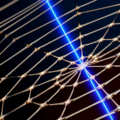
A team of researchers from TU Delft managed to design one of the world’s most precise microchip sensors; the device can function at room temperature – a ‘holy grail’ for quantum technologies and sensing.
19 November 2021
Delft scientists put the spotlight on combined capture and conversion of CO2
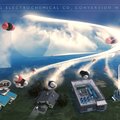
CO2 can be electrochemically converted into valuable chemicals and fuels. Both capturing and converting CO2 do, however, require a lot of energy. An optimal combination of both processes can save a lot of energy and reduce the loss of materials. The TU Delft research group of David Vermaas recently published a paper in Nature Catalyses, summarising the various ideas on how to achieve this.
19 November 2021
Healthy Start: Increasing opportunities for young people

18 November 2021
The Best Tech Idea of 2021: processor and memory in one
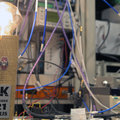
Said Hamdioui's 'computation-in-memory' is the Best Tech Idea of 2021 according to the jury of KIJK magazine. The jury praised Said's computer architecture for making numerous new innovations possible: "the Internet of Things requires large amounts of computers that all must be very energy-efficient. Memristors can be the basis for this and that makes this idea, however young, very important."
17 November 2021
Delft Design alumnus Jerry de Vos wins James Dyson Award sustainability prize
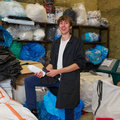
With his Plastic Scanner, Jerry de Vos has designed a handheld device that can tell you quickly what kind of plastic something is made of. Knowing this is crucial for better reuse and recycling of the growing worldwide plastic waste.
15 November 2021
NWO Open Competition Grant for Sabina Caneva

In her research project ‘MechanoPore’ Sabina Caneva works on the development of programmable, shape-shifting DNA origami nanovalves for size-selective delivery of biomolecules across cell membranes. The NWO Domain Board Science has awarded Caneva for her research in the Open Competition Domain Science-XS.
11 November 2021
Project SmartX: energy efficient aircraft wing of the future
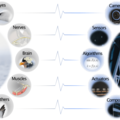
The researchers and students of the SmartX project are developing the energy-efficient aircraft wings of the future. They take inspiration from nature: they mimic the steering and wing movements of birds. With their intelligent technology, the wings are expected to reduce aircraft structural mass by 30%.
10 November 2021
TU Delft supercomputer available from January

09 November 2021
Looking between the hidden layers of The Night Watch
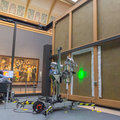
TU Delft researchers Andrei Anisimov, Roger Groves and Nan Tao used their special research equipment in the Rijksmuseum last week, to make the invisible structure of The Night Watch visible.
02 November 2021
Marileen Dogterom gekozen tot KNAW-president
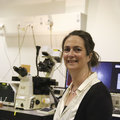
01 November 2021
Meltwater from the Austrian Alps

An imposing, compelling and urgent social problem, that is what Master student Sarah Hanus wanted for her final project. She found it high up in the Austrian Alps where climate change is altering river runoff patterns. Using a model she developed herself, Hanus is able to come up with long-term projections of what these patterns will look like in future. Her work earned her the title of Best Graduate of the Faculty of Civil Engineering & Sciences.
28 October 2021
TU Delft and ITEC BV launch X.AL, the first Dutch Lab for Extreme Chip Assembly Technology
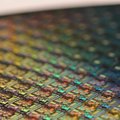
22 October 2021
Mechanism underlying the emergence of virus variants unravelled
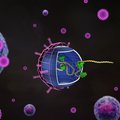
An international consortium, led by Delft University of Technology and the University of North Carolina, has for the first time succeeded in probing the molecular origins of recombination in RNA viruses. Hiccups during the copying process of viruses cause recombination to take place: the exchange of segments of viral RNA.
19 October 2021
NWO Open Competition Grant for Hanieh Bazyar
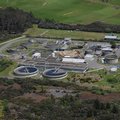
Current membrane fabrication processes are not sustainable because they are energy-intensive and require hazardous solvents. We are all familiar with the concept of 3D printing as it has been used in various fields in the last decades. However, it couldn’t find its contribution yet to the big industry of polymeric membrane production. Hanieh Bazyar, Department of Process and Energy, received NWO Open Competition Grant for her research on next generation 3D printed separation membranes.
19 October 2021
Mapping the brain motor cortex region in detail
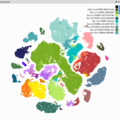
In a major study funded by U.S Government, an international consortium of researchers successfully mapped the different types of brain cells in the motor cortex. Scientists from the Leiden University Medical Center (LUMC) and Delft University of Technology (TU Delft) contributed specific expertise to visualize the data.